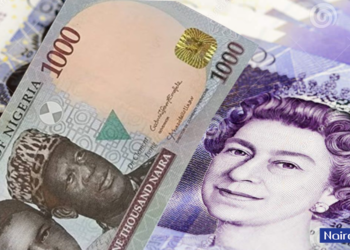Let’s face it; Nigeria’s skyrocketing inflation and a few high-yielding investment options are already deterring some investors from investing in the continent’s largest frontier market.
The risk that investors confront is ranked highly by this rise in the cost of goods and services. The average investor’s portfolio is negatively impacted by inflation because you need to consistently generate returns that are higher than inflation to make genuine progress toward your financial goals. This indicates that the typical Nigerian investor must look for yields higher than that because the present inflation rate is at 20.8%, a 17-year high.
However, it is crucial to remember that there are no assurances when it comes to making investments during a period of rising inflation.
Returns on such investments are never assured, but at most they may be protected from inflation.
The main plan of action should be on how to protect your finances from inflation-related devaluation. In situations where it is possible to raise the value of your assets before the inflation curve, the front-loading method is advised.
In Nigeria, the issue of excessive inflation is nothing new. The nation has kept its inflation rate above 10% since February 2015, which has significantly reduced the value of the naira.
One of the biggest dangers faced by investors is the rise in the cost of products and services. The average investor’s portfolio is negatively impacted by inflation because you need to consistently generate returns that are higher than inflation to make genuine progress toward your financial goals.
Explicit Commodity Exposure
According to research, the demand and supply of important commodities is frequently related to inflation, and during inflation, commodity prices typically rise. Therefore, at times of high inflation, commodity investors might reap large benefits.
You can invest in actual commodities or commodity-focused funds to stay afloat. These funds invest in derivatives related to a single commodity or a basket of commodities and provide you exposure to the dollar, which can protect you from the naira devaluation.
Buying the shares of commodity producers, like oil and minning companies, is another strategy to invest in them. Such companies typically generate more revenue and profit when there is inflation driven by commodities.
However, bear in mind that commodities are extremely erratic and susceptible to changes in supply and demand.
Eurobonds
Essentially, Eurobonds are financial securities that are issued in a currency other than the issuer’s own by a nation or corporate entity.
- The Eurobond Fund is a mutual fund that invests in dollar-denominated Eurobonds that are launched by the Federal Government of Nigeria and other Eurobonds that meet certain criteria and are registered with the Securities and Exchange Commission.
- In terms of bond instruments, Eurobonds function similarly to fixed-income securities. It has a yield, a price at which the bond will be purchased, a coupon, and an interest rate paid on bonds that are paid bi-annually.
- For individuals who were unable to participate in the primary auction, investors can purchase Eurobonds on the secondary market after the primary auction has concluded.
Mutual funds
- Mutual funds are pooled investment vehicles where a qualified fund manager manages your investment in line with the fund’s aim. The asset under management, which is created by pooling the investments of multiple investors, is then invested in the appropriate capital markets, such as stocks, bonds, commodities, etc.
- For investors looking for passive income, mutual funds are quite advantageous because you don’t need to analyze the markets or monitor pricing. However, you must only look for funds that have done best at least in the last five years by checking the fund’s historical performance. You must also examine the performance history of the mutual funds that you are investing in.
- Online financial websites offer comparisons of returns and risks of different funds, or you can consult an investment advisor. A suitable fund can be chosen based on the investment needs and risk tolerance of the investor. The goal, portfolio, and approach of a mutual fund should be considered before choosing it.
FGN Bonds
- Data from the FGN Bonds Market reveals that, despite being below the country’s high inflation, the average yield on Federal Government of Nigeria bonds has increased to more than 13%, particularly the ones with longer yields following an interest rate hike. This provides a window through which the inflationary mosquito can be kept out of the country’s financial system.
- FGN bonds nevertheless offer a modest level of protection for your money, even if real returns on fixed-interest securities are typically negative due to the rising inflation rate that has overtaken the rate.
Purchase stocks
- In theory, stock market investments ought to shield investors against inflation. This is because a price increase should increase revenues, which will raise profits and share prices. This isn’t always the case, though, as different industries respond to inflation in different ways and not all companies have the pricing flexibility to pass on growing costs to customers.
- When it comes to investing, you should concentrate on powerful corporations that have significant pricing power and high entry barriers.
- You can also look for businesses operating in strategic fields, such as undervalued blue-chip stocks and the banking industry, which provide yields that at least mitigate the effects of inflation on your assets.
Digital assets
- Investing in cryptocurrencies is possibly the riskiest option. They provide extraordinarily high yields quickly on good days. However, on bad days, you could easily lose the worth of your possessions.
- Cryptocurrencies are a hazardous alternative to traditional investments due to their price volatility. You can consider stablecoins for those that want exposure to dollar-denominated assets, but they are not regulated and carry substantial risk





















